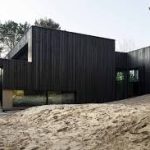Introduction to Suneet Singal and his work in sustainable real estate
Suneet Singal is a name that resonates in the world of sustainable real estate. With a vision focused on minimizing environmental impact, he has positioned himself as a trailblazer in promoting zero carbon footprint developments. As concerns about climate change grow louder, his work stands out for its innovative approach to creating spaces that not only house people but also respect and protect our planet. In an age where sustainability isn’t just a trend but a necessity, Suneet’s insights offer valuable perspectives on how the real estate industry can lead the charge toward greener practices. Join us as we explore his journey and delve into the future of zero carbon footprint real estate.
The importance of reducing carbon footprint in the real estate industry
The real estate industry plays a significant role in the global carbon footprint. Buildings consume vast amounts of energy and resources, contributing to greenhouse gas emissions. As urbanization continues, this impact only intensifies.
Reducing carbon footprints is crucial for sustainable development. It not only addresses climate change but also enhances the quality of life for residents. Energy-efficient structures lead to lower utility bills and healthier living environments.
Moreover, buyers increasingly seek eco-friendly homes that align with their values. This shift creates opportunities for developers who prioritize sustainability.
Regulatory pressures are mounting as governments aim to meet climate goals. Adopting zero-carbon practices can ensure compliance while fostering innovation in design and technology.
Investors are recognizing that green buildings often yield higher returns over time due to operational savings and increased demand in an environmentally-conscious market. Embracing these changes is vital for future-proofing investments and protecting our planet’s resources.
Current trends and practices in zero carbon footprint real estate
Zero carbon footprint real estate is gaining traction as developers seek innovative solutions. One prominent trend is the integration of renewable energy sources, such as solar panels and geothermal systems. These technologies not only reduce reliance on fossil fuels but also lower operating costs over time.
Another practice making waves in this sector is the use of sustainable materials. From reclaimed wood to recycled steel, builders are prioritizing eco-friendly options that minimize environmental impact.
Smart building technology plays a crucial role too. Integrating IoT devices helps monitor energy consumption and optimize resource usage efficiently.
Moreover, urban green spaces are becoming essential in new developments, enhancing air quality while providing residents with natural surroundings.
These trends reflect a shift towards more responsible practices within real estate development. As awareness grows, zero carbon projects are positioned to reshape entire communities for a greener future.
ALSO READ: Katerina Goltzwart: Shaping the Future of Art and Vision
The benefits for both investors and the environment
Investing in zero carbon footprint real estate offers a dual advantage. For investors, the potential for long-term savings is significant. Energy-efficient buildings reduce utility costs and often attract premium rents. They also tend to have higher occupancy rates as tenants become more eco-conscious.
From an environmental perspective, these developments play a crucial role in combating climate change. By minimizing emissions, they contribute to cleaner air and healthier communities. Sustainable materials used in construction further lessen the ecological impact.
Additionally, properties with green certifications can enhance market value over time. Investors are increasingly recognizing that sustainability isn’t just ethical; it’s smart business strategy.
The synergy between financial gain and environmental responsibility creates a win-win scenario for all stakeholders involved. As consumer preferences shift toward sustainable living, early adopters of zero carbon projects position themselves at the forefront of this growing market trend.
Challenges and solutions for implementing zero carbon footprint in real estate developments
Implementing zero carbon footprint in real estate comes with its share of challenges. One major hurdle is the initial investment cost. Many developers hesitate to allocate funds for sustainable technologies and materials.
However, innovative financing options are emerging. Green bonds and tax incentives can ease this burden, encouraging more projects focused on sustainability.
Another challenge is navigating regulatory requirements. Zoning laws often lag behind advancements in green building practices.
Suneet Singal advocates for collaboration between stakeholders, including government bodies and private sectors. This partnership could lead to streamlined regulations that promote eco-friendly development.
There’s a knowledge gap among builders and investors regarding zero-carbon practices. Educating teams through workshops or partnerships with sustainability experts can bridge this divide effectively.
Addressing these hurdles will pave the way for more widespread adoption of zero carbon strategies in real estate developments.
ALSO READ: Who is aiden langston utah? Everything You Need To Know
Case studies of successful zero carbon footprint projects
One striking example of a successful zero carbon footprint project is The Edge in Amsterdam. This innovative office building showcases sustainable design with its energy-efficient technologies and extensive use of solar panels. It produces more energy than it consumes, setting a benchmark for commercial real estate.
Another notable case is the Bosco Verticale in Milan. These residential towers not only provide homes but also integrate vegetation into their architecture. They absorb CO2 and improve air quality while offering residents a unique green living experience.
In the U.S., the Bullitt Center in Seattle stands out as one of the greenest commercial buildings worldwide. Its rainwater harvesting system and composting toilets contribute to a self-sustaining ecosystem that minimizes environmental impact.
These projects illustrate how visionary designs can lead to remarkable achievements in sustainability, inspiring others to follow suit in creating eco-friendly spaces.
Future predictions and advancements in this field
The future of zero carbon footprint real estate is bright and full of potential. Technological advancements are paving the way for smarter buildings that utilize renewable energy sources efficiently.
Smart grids will play a crucial role, allowing properties to manage their energy consumption in real-time. With innovations like solar panels integrated into building materials, homes can generate their own electricity right from the rooftop.
Moreover, sustainable materials will become more mainstream. Architects and developers are increasingly turning to recycled resources and eco-friendly options that reduce environmental impact without compromising on quality or style.
Government incentives and regulations are also expected to drive change. As policies favor green initiatives, more investors will flock to projects that prioritize sustainability.
Urban planning is evolving too. We might see entire neighborhoods designed around low-carbon living with efficient public transport systems, promoting a lifestyle where people can live comfortably without leaving a heavy mark on the planet.
ALSO READ: Phillips Marcelo: Champion of Compliance and Risk Management
Conclusion: Why following Suneet Singal?
Suneet Singal is a visionary in sustainable real estate. His commitment to reducing the carbon footprint in property development sets him apart in an industry that has long been associated with environmental degradation. By championing zero carbon initiatives, he not only addresses pressing ecological concerns but also creates a roadmap for future developments.
Following Suneet’s insights can provide valuable knowledge on how to navigate this evolving landscape. He emphasizes the importance of sustainable practices and showcases successful projects as proof that eco-friendly real estate is viable and profitable. As investors become increasingly aware of their impact on the environment, adopting Singal’s principles can lead to smarter, more responsible investments.
The challenges faced in implementing zero carbon strategies are numerous, yet Suneet offers innovative solutions rooted in technology and community engagement. His approach embodies forward-thinking that will likely influence many upcoming trends within the sector.
Choosing to follow Suneet Singal means aligning with a leader who not only envisions a greener future but actively works towards making it attainable for all stakeholders involved— from developers to investors, and ultimately society at large. Embracing his mission could be key for anyone looking to make a significant impact through real estate while supporting sustainability efforts across the globe.
ALSO READ: Everything About Jarreth Joseflee Plunkett
FAQs
What is Suneet Singal?
Suneet Singal is a prominent entrepreneur in sustainable real estate, known for promoting zero carbon footprint developments and innovative practices in the industry.
Why is zero carbon footprint important in real estate?
Zero carbon footprint is crucial as it reduces greenhouse gas emissions, promotes energy efficiency, and aligns with increasing regulatory pressures and consumer demand for eco-friendly buildings.
What are the benefits of investing in zero carbon real estate?
Investors can enjoy lower operating costs, higher occupancy rates, and increased property values while contributing positively to the environment and addressing climate change.
What challenges exist in implementing zero carbon strategies?
Key challenges include high initial costs, navigating regulatory hurdles, and a knowledge gap in sustainable practices among builders and investors.
What successful projects exemplify zero carbon real estate?
Notable projects include The Edge in Amsterdam, Bosco Verticale in Milan, and the Bullitt Center in Seattle, each showcasing innovative designs and sustainable practices.







